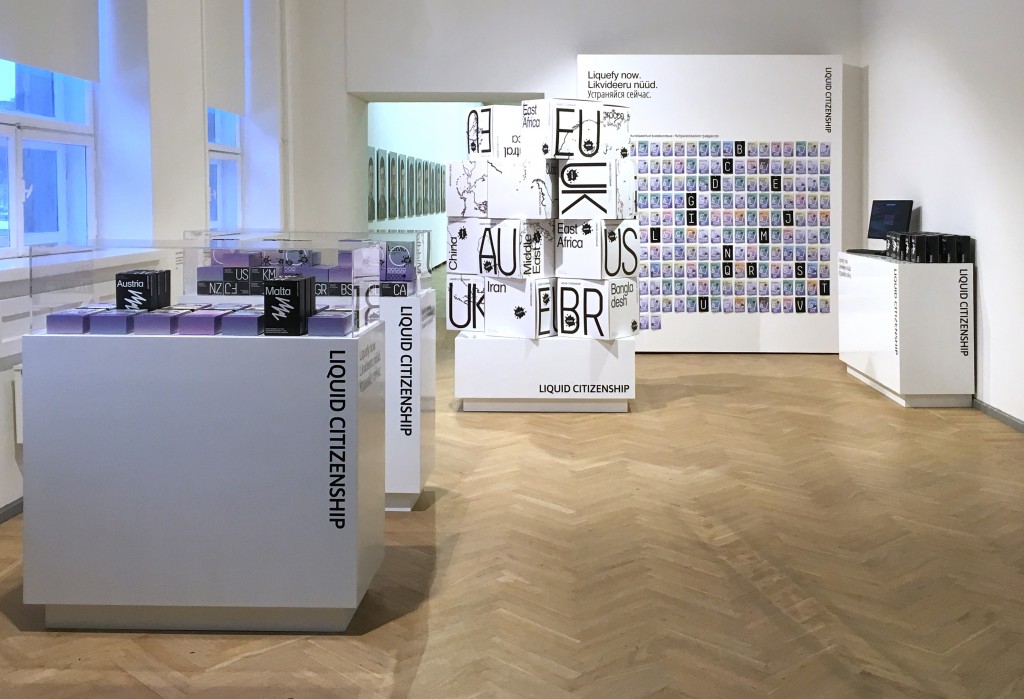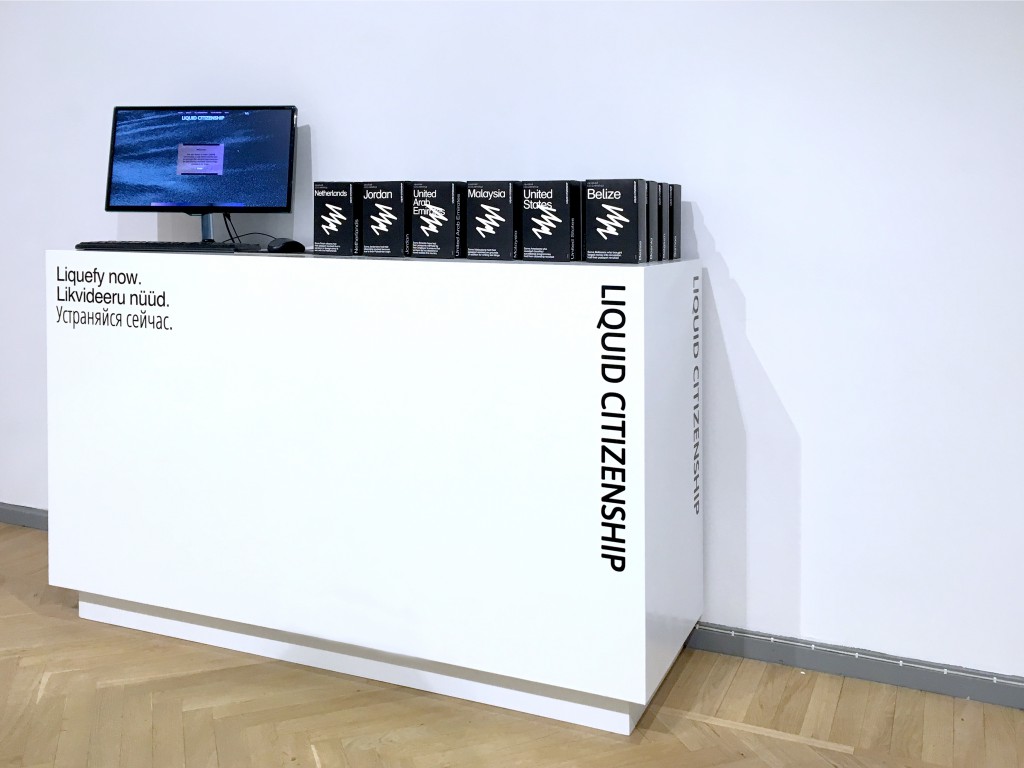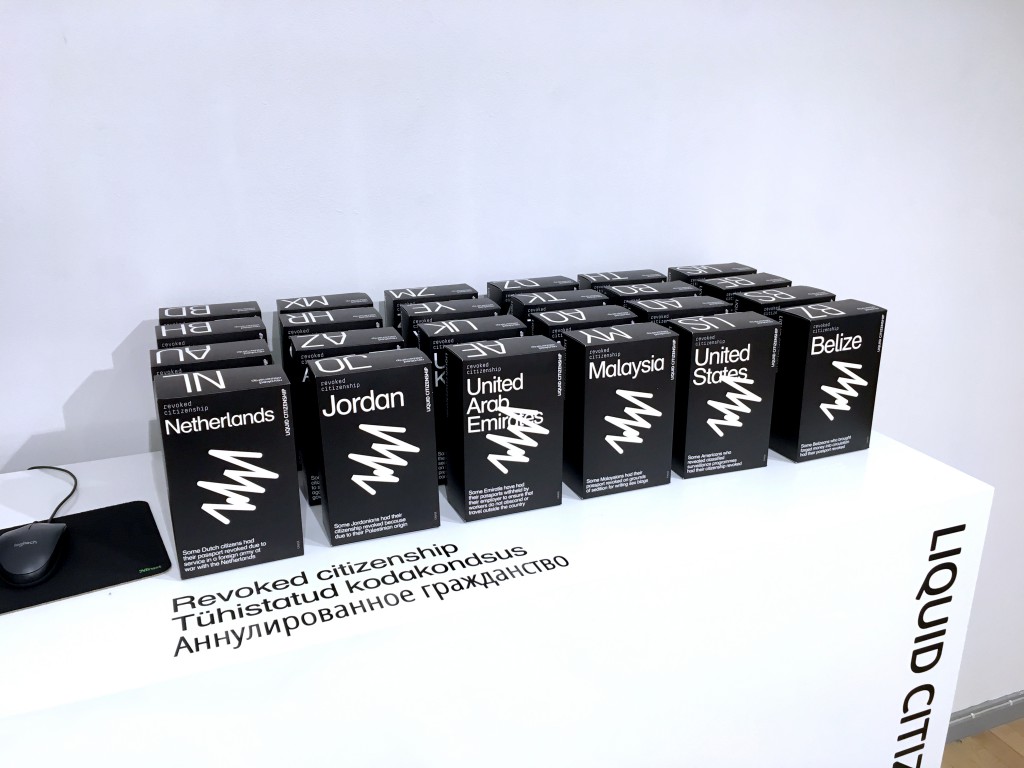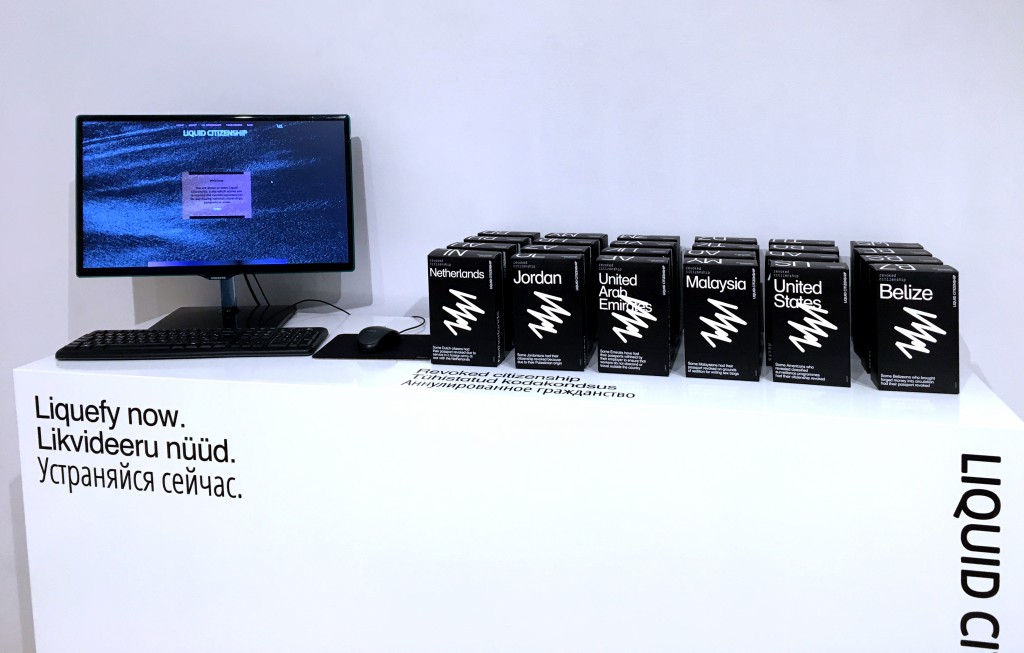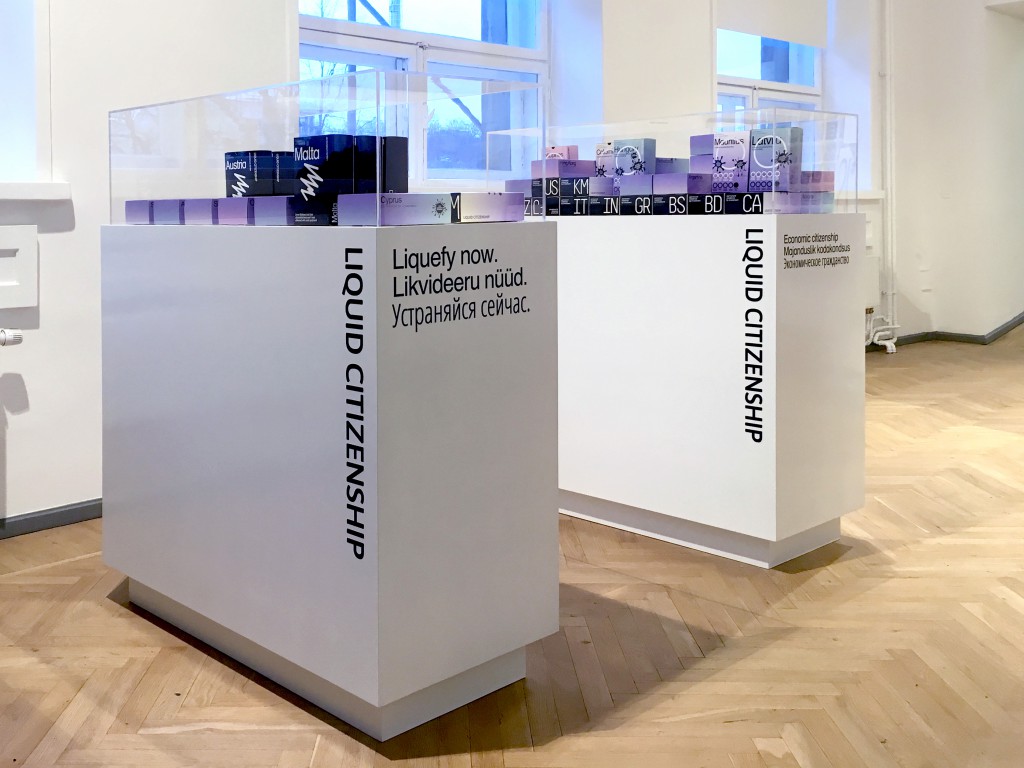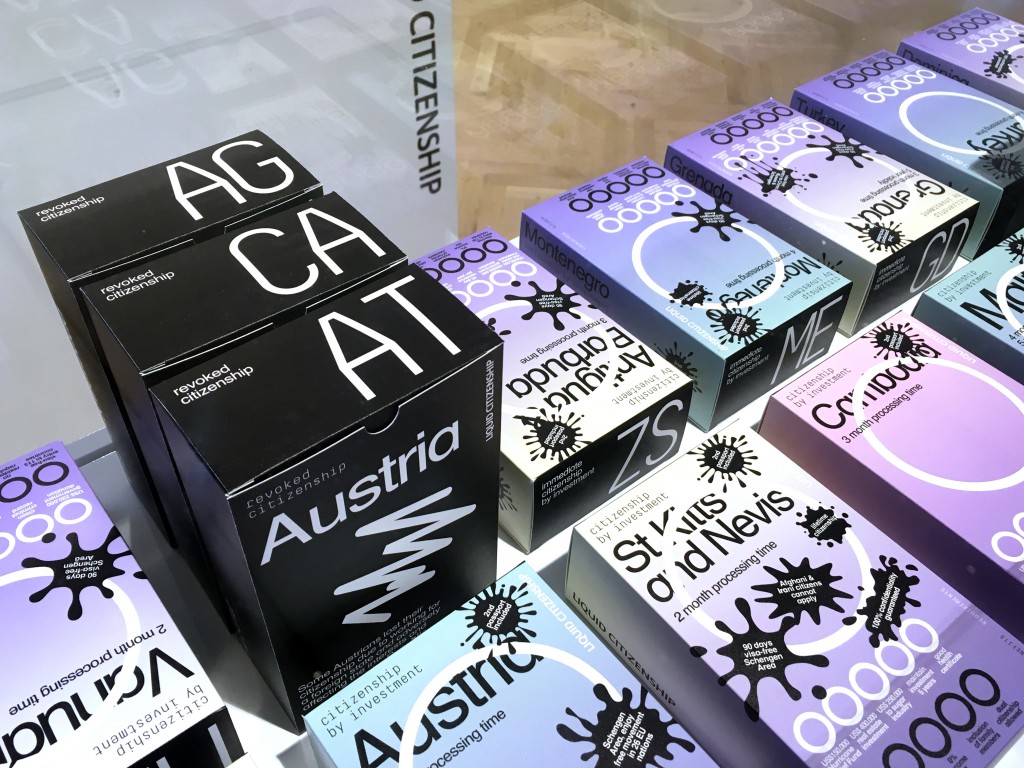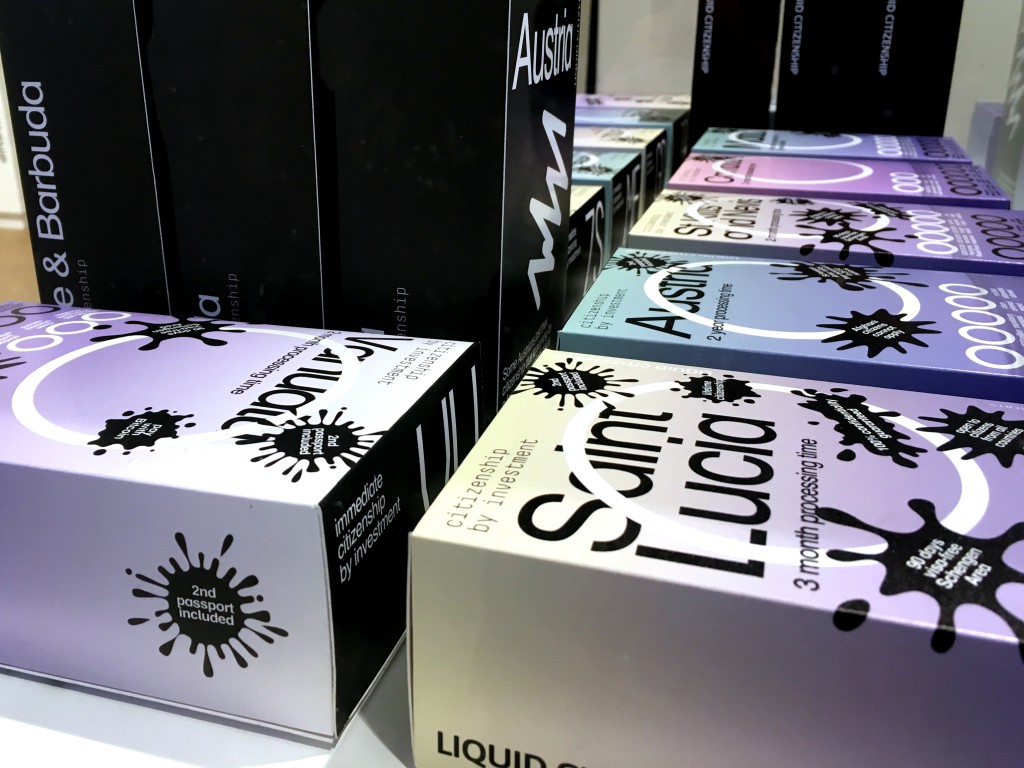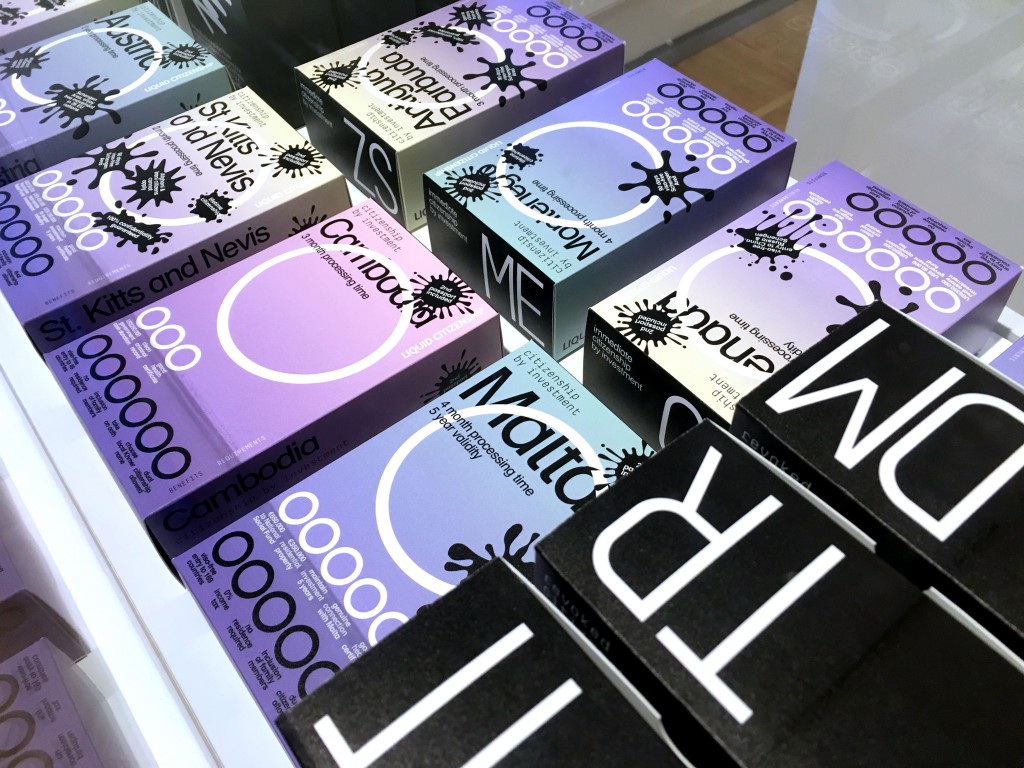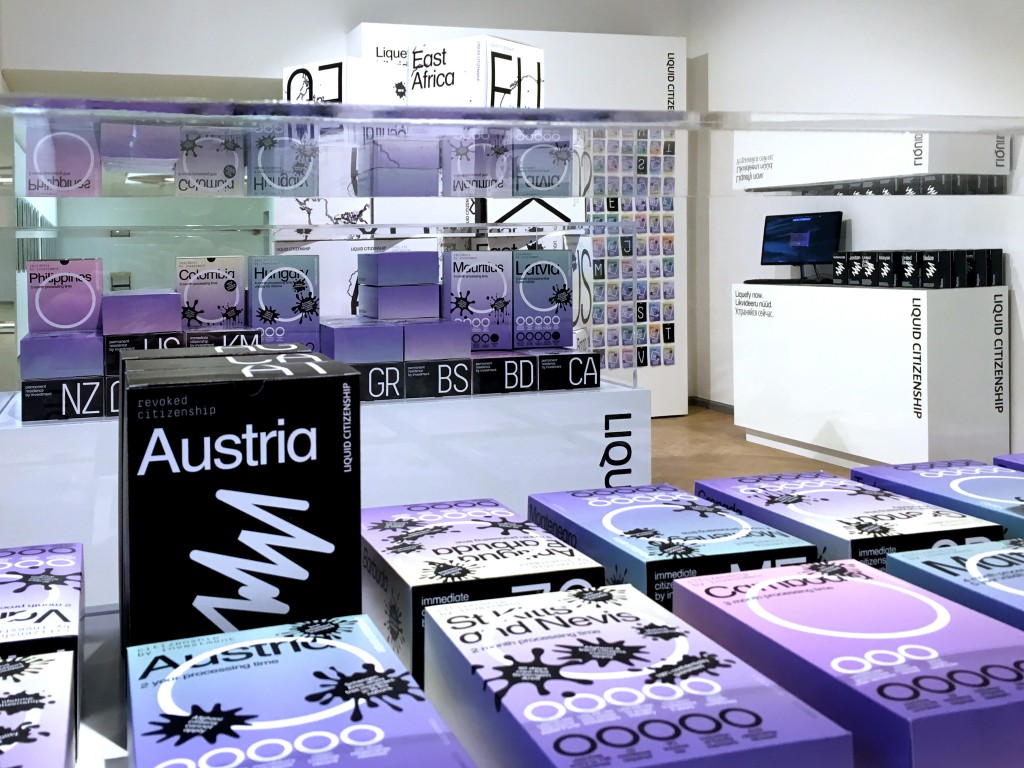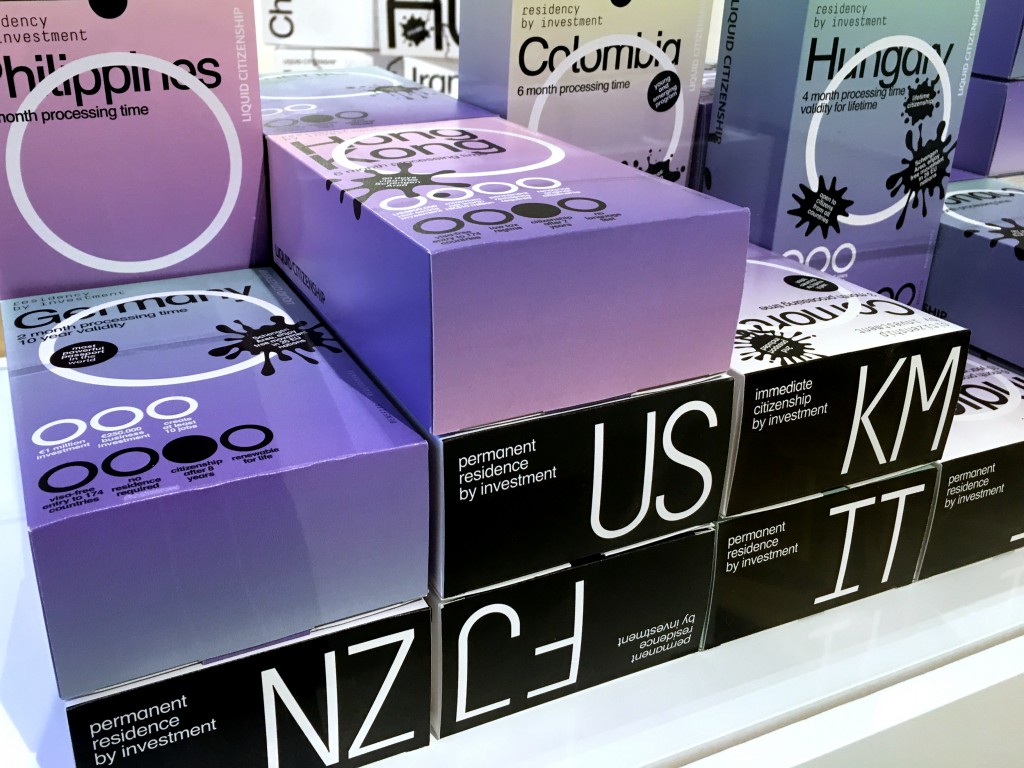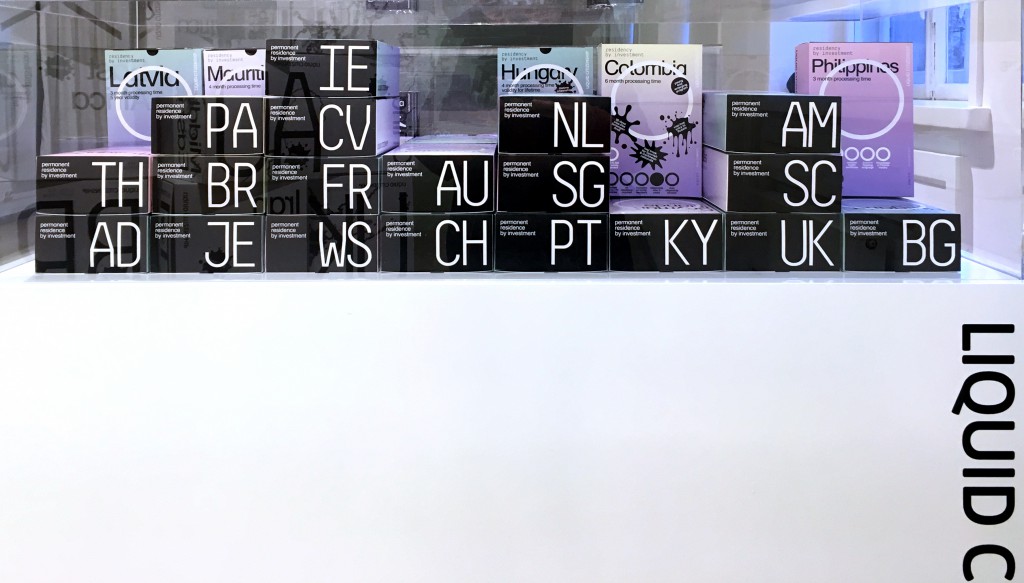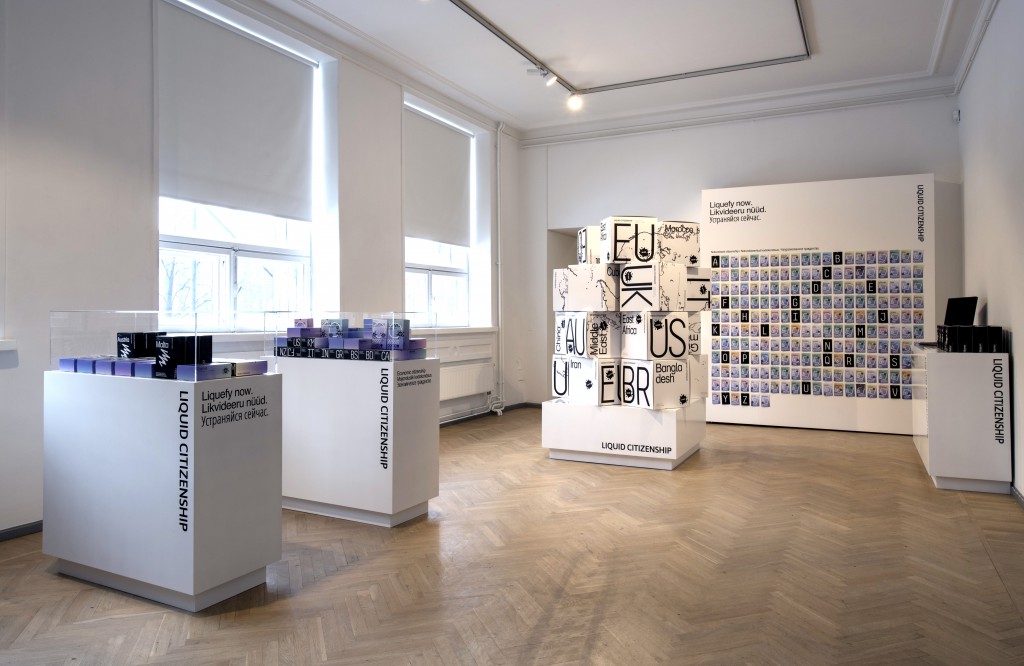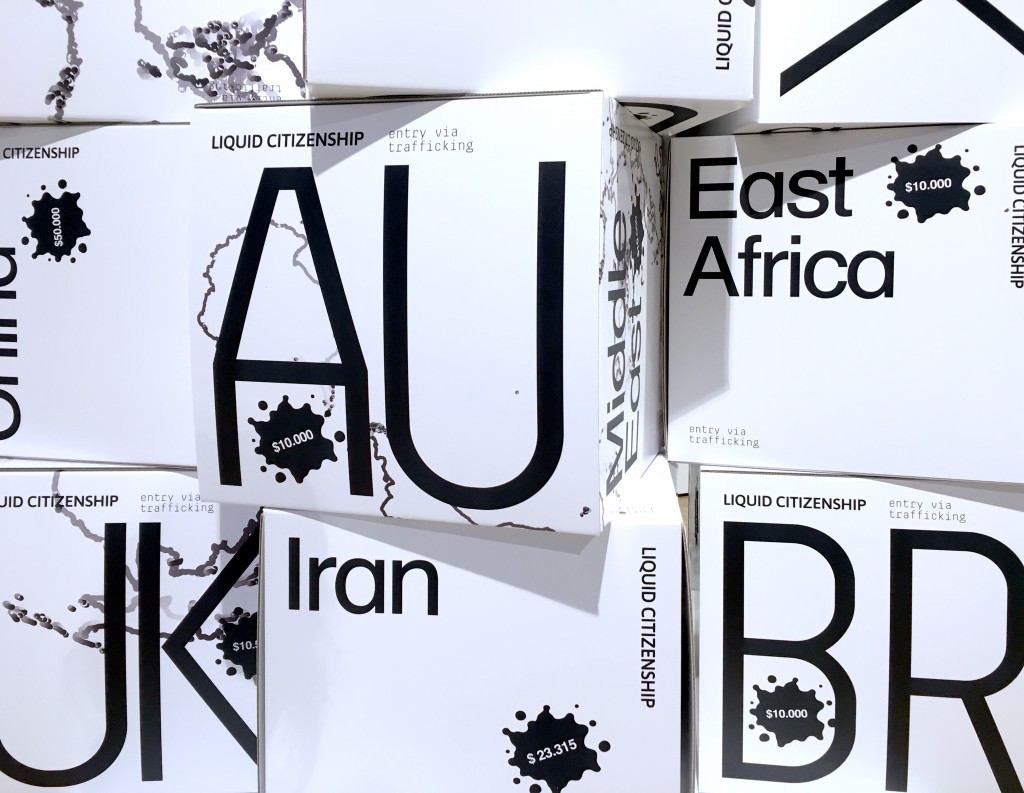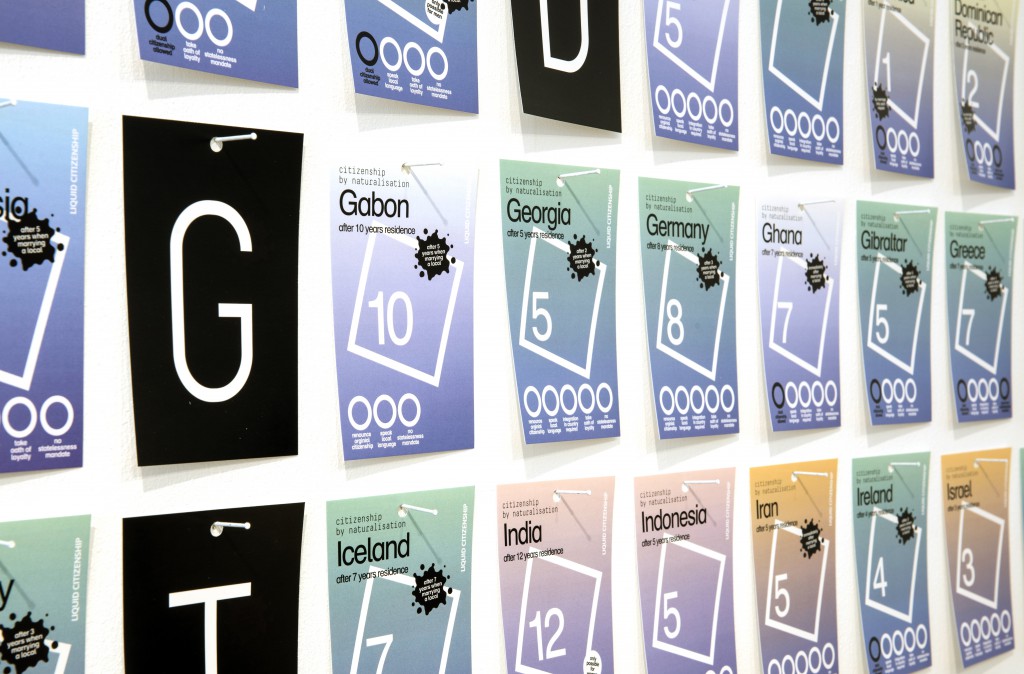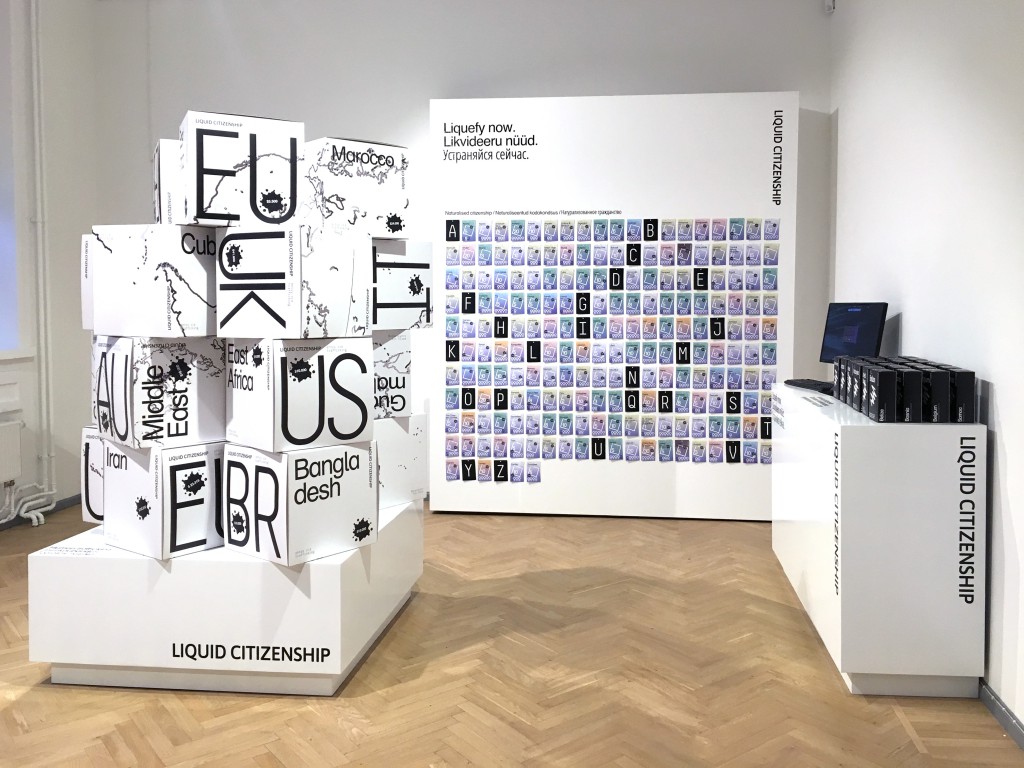Liquid Citizenship (2015–2018)
2018 – installation, citizenship packages, badges, lanyards, website
Liquid Citizenship
We may not realize it every day, but being officially recognized as a citizen of a country has great advantages. According to a social security attorney, citizenship provides us access to the benefits that a country has to offer, such as education, healthcare, social security, safety and the right to apply for a passport (to differing degrees, and depending on the country, of course). If you are a business owner, it also offers access to profitable tax measures and other economical regulations. Being born in a country has long been the most common way to acquire citizenship. Today it is not any more the only way to become a citizen of a country, or to get a passport.
The work Liquid Citizenship by Femke Herregraven starts from the notion that national citizenship has become “liquid”. Citizenship has been turned into a commodity that can be purchased, traded or revoked. Liquid Citizenship – which started as an online ‘game’ – has been further developed for the exhibition The State is not a Work of Art as an installation. It is presented as a physical “app store” where one can purchase national citizenships, passports or visas of other countries. The store enables you to explore all available options for purchasing a national passport, or acquiring citizenship in a country of one’s choice.
African and South American countries are already actually promoting and selling citizenships, thus creating access to the global economy. Even some poor Eurozone countries have started to sell “golden visas” to generate investment in their economies. This so-called “Economic Citizenship”, can be obtained through buying real estate in a foreign country, or donating to its government. It is clear that this high-end commodity is only accessible to elite consumers, such as multinationals or the very rich. The reverse also occurs, when citizenships and passports are revoked as part of international counter-terrorism strategies. Citizenship is no longer defined as a right, but as a privilege that can be bought or taken away at will and at any moment. Citizenship has become a high-level liquidity in all sorts of markets. Liquid Citizenship also shows the gap between the haves and the have-nots; the latter being the group of people who don’t have the legal means to gain citizenship of another country. They are the political or economic refugees who pay thousands of dollars to illegally cross borders and eventually may lose their lives, while striving for a new and more promising legal status. In an unsettling manner, Liquid Citizenship provides us with information and materials about contemporary citizenship, emphasizing its awkward and questionable economic and consumer focused development. – Text by Katerina Gregos
The State is not a work of art – With Ewa Axelrad, Loulou Cherinet, Marta Górnicka, Lise Harlev, Femke Herregraven, Flo Kasearu, Thomas Kilpper, Szabolcs KissPál, Stéphanie Lagarde, Ella Littwitz, Thomas Locher, Cristina Lucas, Damir Muratov, Tanja Muravskaja, Marina Naprushkina, Kristina Norman, Daniela Ortiz, Katarzyna Przezwańska, Jaanus Samma, Ivar Sakk, Larissa Sansour, Jonas Staal, and Kristina Solomoukha & Paolo Codeluppi. Curated by Katerina Gregos
16 February – 29 April 2018
